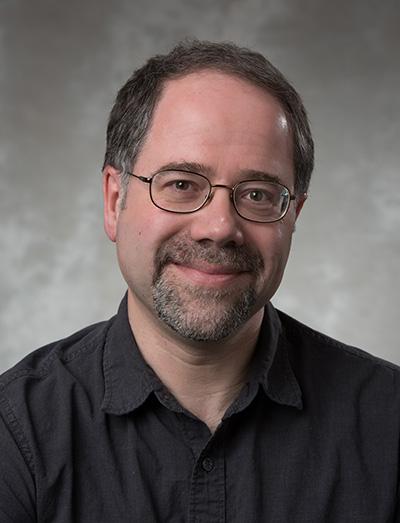Leonid Brown

Find Related People by Keyword
Instrumentation
High-end time-resolved vacuum infrared spectrometer, Raman/FTIR combination spectrometer, Time-resolved visible range laser spectrometer.
Capabilities
Membrane protein expression, isotope labeling, purification, and lipid reconstitution; Spectroscopic characterization (UV/Vis, FTIR, Raman) of biomolecules.
Education and Employment Background
Dr. Leonid Brown obtained his PhD in Biology (Biophysics) from Moscow State University, Russia, in 1991. He joined the University of Guelph’s Department of Physics in 2002, where he currently serves as full professor.
Research Themes
Brown’s research focuses on the biophysical properties of a diverse family of photoactive retinal-binding proteins called microbial rhodopsins. Rhodopsins are found in bacteria as well as higher organisms, serving as either light-driven ion pumps (important in bioenergetics) or photosensors (important in microbial motility, animal vision, and circadian clocks). His research combines molecular biology with modern biophysical methods including time-resolved spectroscopy in the visible, Fourier-transform infrared spectroscopy, nuclear magnetic resonance, and Raman spectroscopy. His research focuses on the following major themes:
- Exploring novel microbial rhodopsins that may have a role in various light-driven processes, starting with bioinformatics and ending with advanced spectroscopy. This research is important for our understanding of bioenergetics and sensory transduction of prokaryotic and eukaryotic microbes, and may lead to finding new tools for optogenetics.
- Using microbial rhodopsins and human water channels (aquaporins) as model membrane proteins to study protein-lipid interactions, oligomerization, and folding, mainly by solid-state NMR spectroscopy (collaboration with V. Ladizhansky, Guelph). This research is important for advancing our understanding of structure/function relationship in helical membrane proteins.
Highlights
- Member of Editorial Board of the Biophysical Journal, the premier international publication in the field of biophysics, 2009-2015 and 2024
- Received Premier’s Research Excellence Award in 2003 from the Ministry of Economic Development and Trade, Ontario, Canada
- Received Research Innovation Award in 2003 from the Research Corporation, Tucson, AZ, USA
- Member of the Canadian Biophysical Society Executive (2019-2022)
- Received DAAD and Ontario-Baden-Württemberg scholarships to conduct research in Berlin and Freiburg, Germany (2016)
- Visiting Professorship at the Nagoya Institute of Technology, Japan (2015) and Sogang University, Korea (2009)
Media Coverage
- Health Canal: Research May Lead to New Drugs for Heart Disease, Other Ailments
- Department of Physics News: Featured in Biophysical Journal’s New and Notable
- The Scientist: Received international recognition for discovering the first eukaryotic rhodopsin that functions as a light-driven transmembrane proton pump